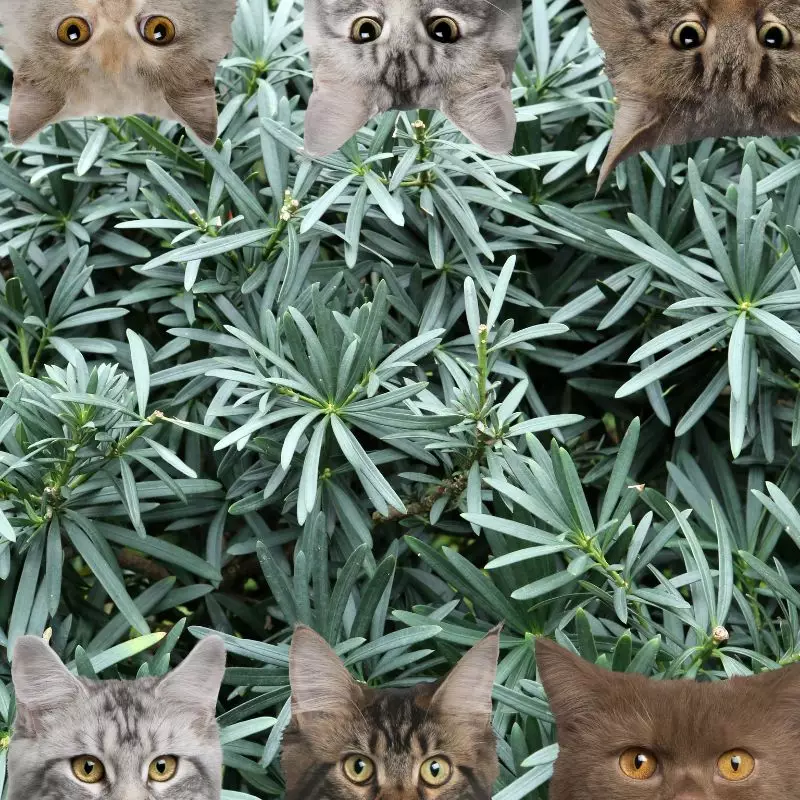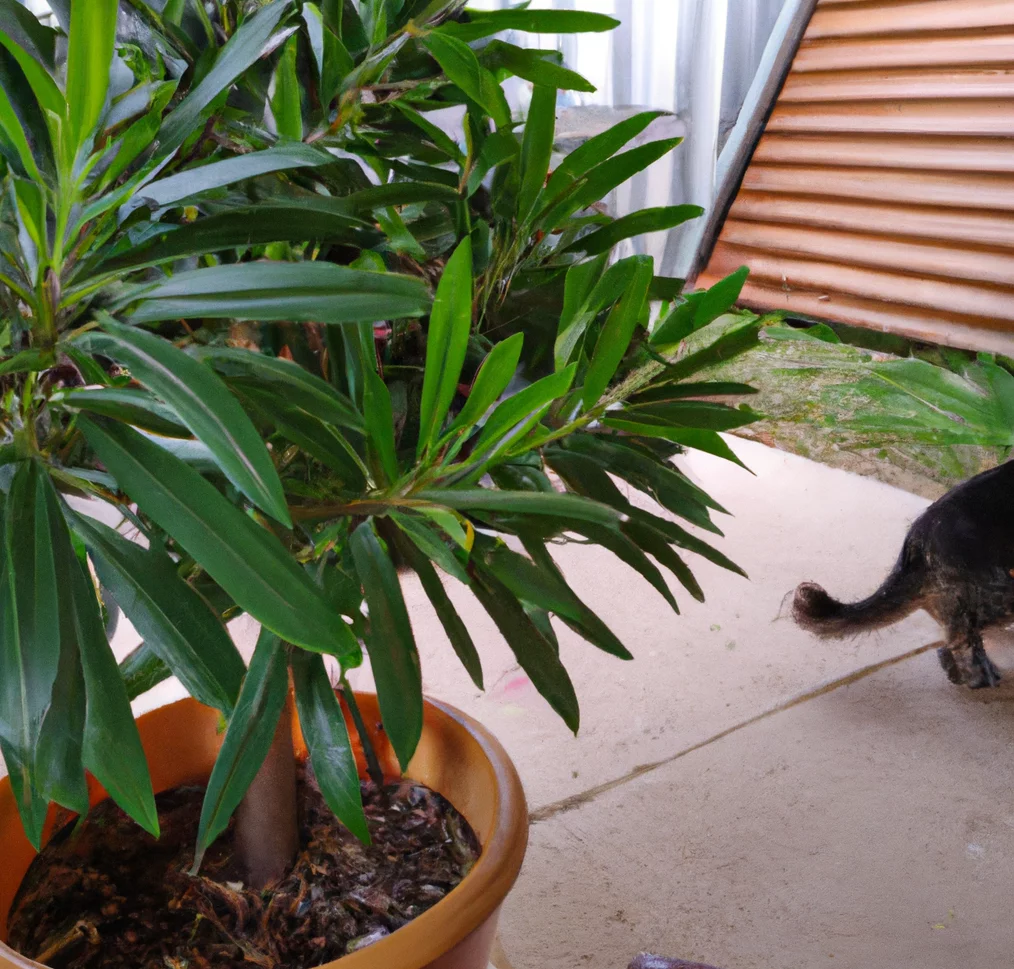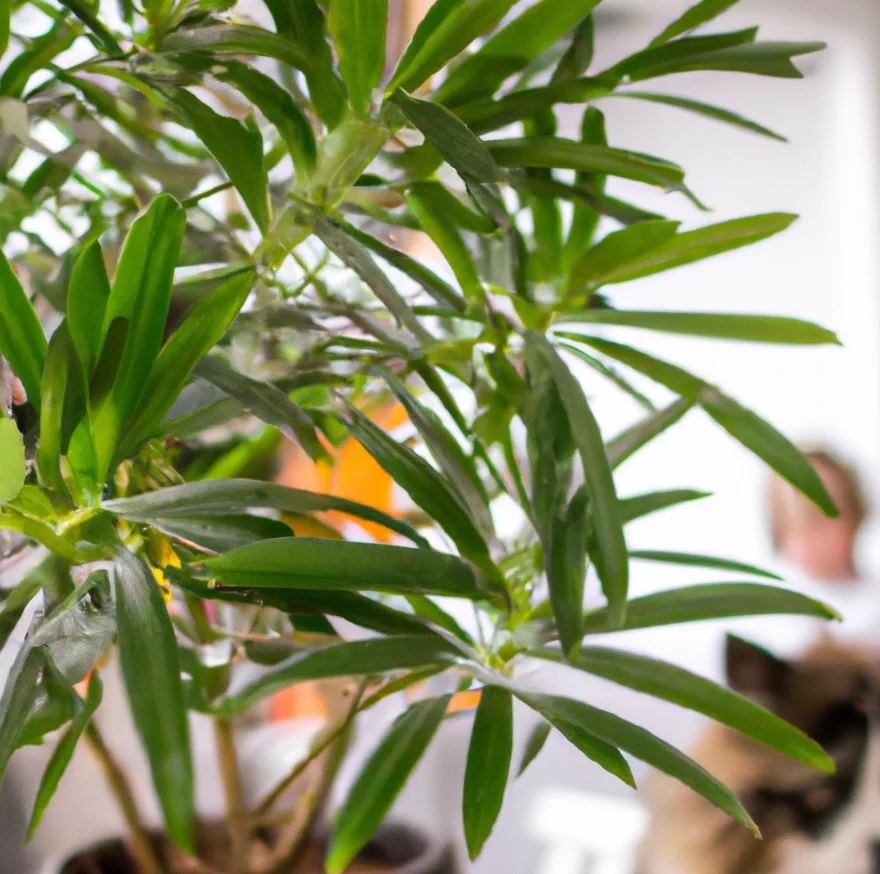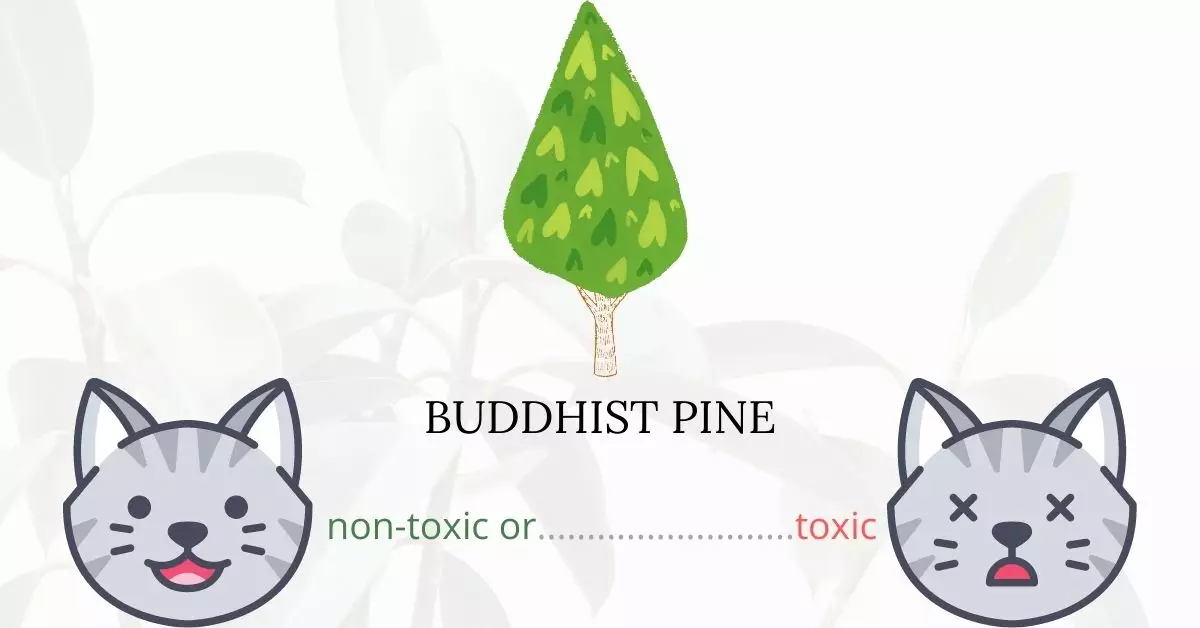Yes, the Buddhist Pine, also commonly known as Yew Pine, Japanese Yew, Southern Yew, or Podocarpus, is toxic to cats. Ingestion of any part of this plant can lead to symptoms such as diarrhea, enlarged pupils, seizures, tremors, and vomiting in felines. While it remains somewhat unclear about the exact toxic substances contained in the Buddhist Pine, it’s crucial for cat owners to recognize the potential danger it poses.
This article has been written in collaboration with a team of experienced DVMs (doctors of veterinary medicine). Their valuable insights, combined with research from high-authority websites like ASPCA and PetMD, ensure that we provide accurate and up-to-date information about the potential risks associated with various plants, particularly the Buddhist Pine in this context, and their effects on cats.
Clinical Signs of Buddhist Pine Poisoning in Cats

If you suspect your cat has come into contact with, inhaled, or ingested the Buddhist Pine plant, it’s essential to be vigilant for specific clinical signs and seek immediate veterinary care. Here’s an in-depth look at these symptoms and the reasons they might manifest:
- Abdominal pain: This discomfort arises because the toxic substances in the Buddhist Pine irritate the gastrointestinal lining, causing cramping and pain.
- Diarrhea: The ingestion of this plant can disturb the cat’s digestive system, leading to loose or frequent bowel movements as the body tries to expel the toxic substances.
- Drooling: The plant’s toxins can lead to irritation of the oral cavity and esophagus, resulting in excessive salivation or drooling.
- Enlarged pupils: The neurotoxins present in the Buddhist Pine may affect the cat’s central nervous system, causing the pupils to dilate or enlarge.
- Nausea: As with many toxic substances, the ingestion of Buddhist Pine can lead to a feeling of queasiness, making the cat appear unsettled or unwilling to eat.
- Vomiting: This is another protective mechanism of the body, attempting to eliminate the ingested toxins from the system.
If you observe any of these symptoms in your cat, it’s imperative to seek medical assistance from a veterinarian immediately.
First Aid and Treatment of Buddhist Pine Poisoning in Cats

The veterinarian will give usual countermeasures for poisoning, such as inducing vomiting and performing gastric lavage, which involves placing a tube into your cat’s stomach through the mouth and gently pushing small volumes of saline solution into the stomach to eliminate the contents. Activated charcoal can also be given to your cat to absorb toxins and prevent them from entering the stomach or other tissues. If your cat has been having convulsions, paraldehyde will be administered via IV to help your cat relax while also reducing anxiety. Depending on the severity of your cat’s ailment, the vet may recommend close monitoring of your cat for a night or two.
Recovery from Buddhist Pine Poisoning in Cats

After the treatment, the veterinarian will provide you with specific advice on what to do next. Once you return home, make sure your cat has lots of fresh water and a soft diet for at least a week, or as prescribed by your veterinarian. Allow your cat to rebuild strength in the comfort of your home while he or she recovers.
Prevention of Buddhist Pine Poisoning in Cats
Keep away your cats from Buddhist pine trees and other poisonous plants that may be in your home or neighborhood. Use playpens or cat houses to ensure their safety especially if you are going to leave them alone in the house. Install additional protection in your house like fences and safety nets to restrict your cats from going beyond the vicinity of your house.
If you love plants but have cats at home, check out these lists:





